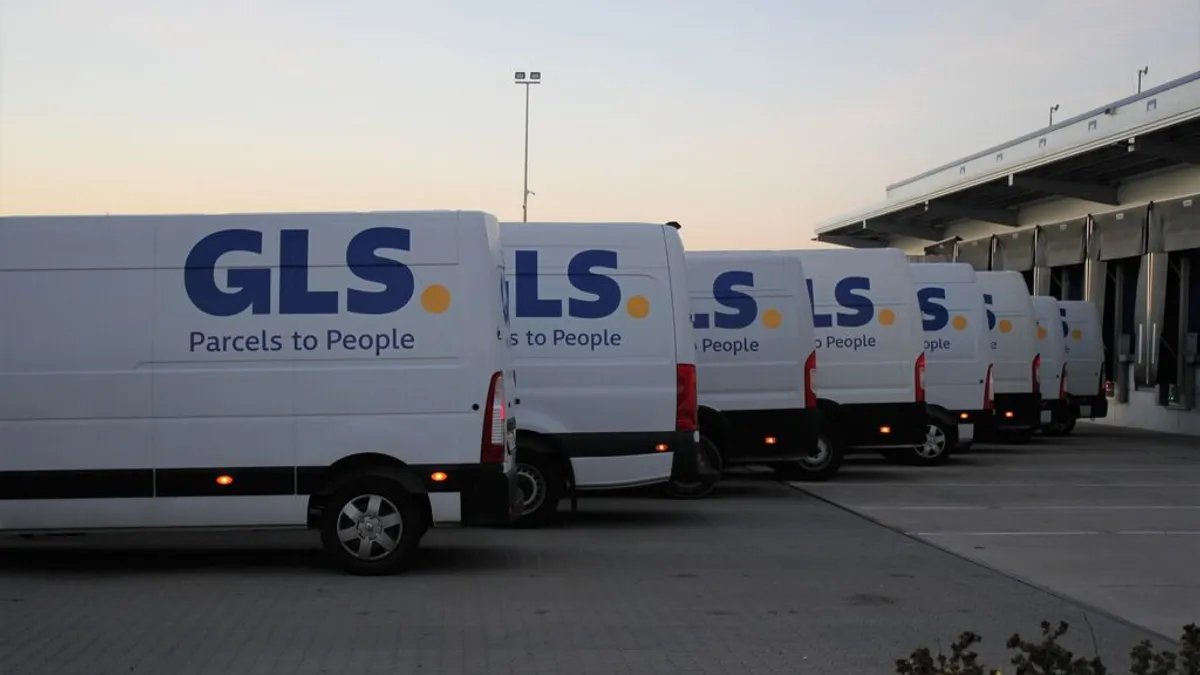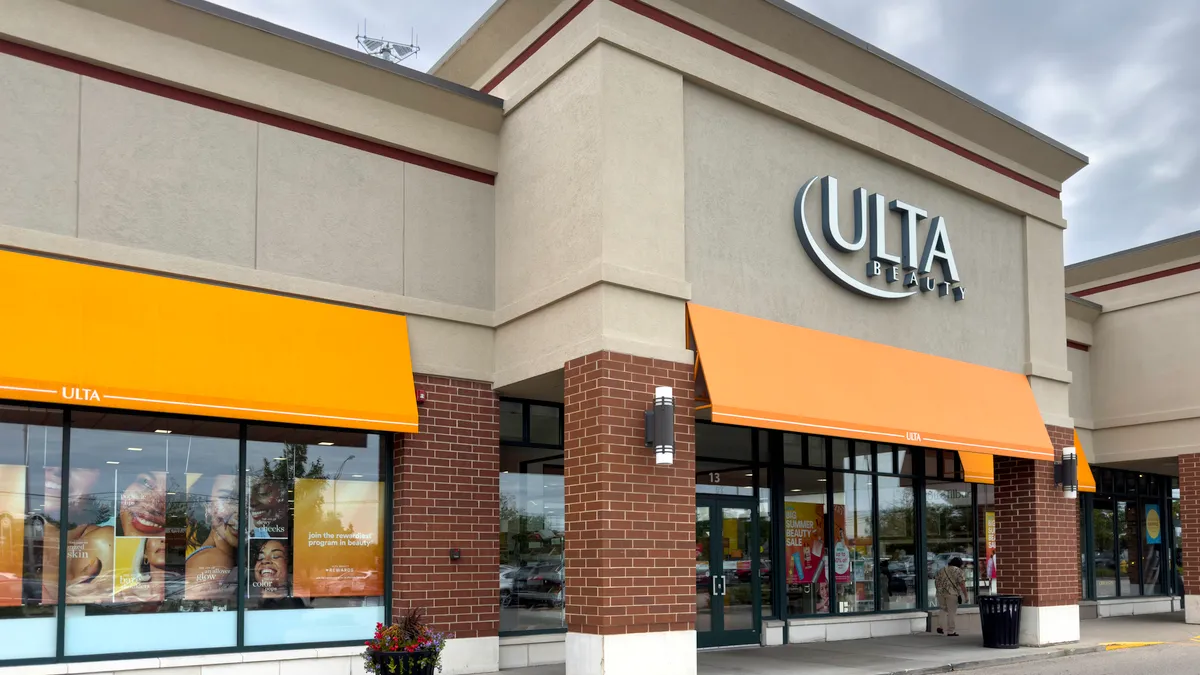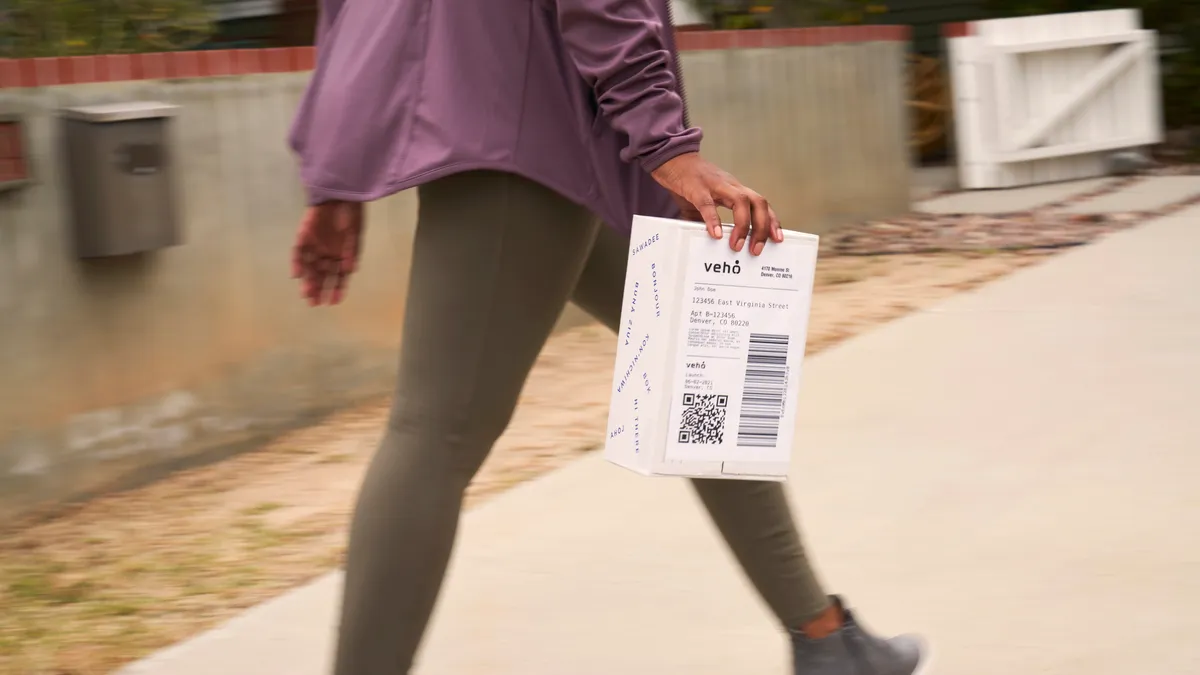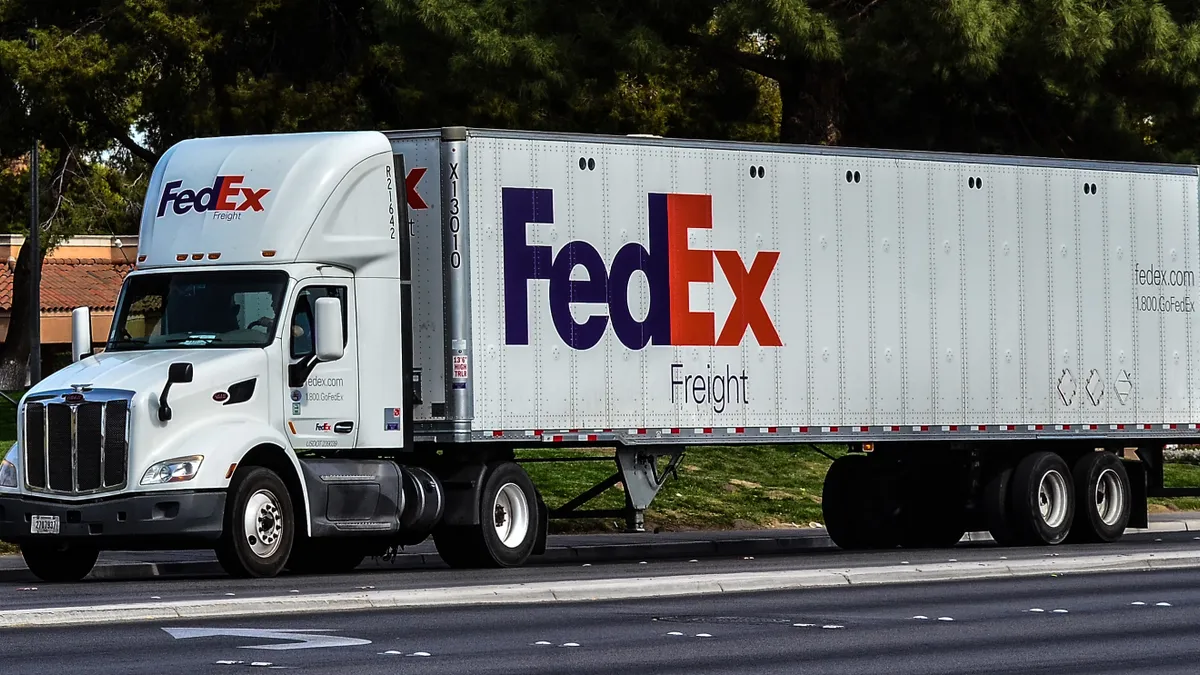The case against electronic logging devices (ELDs) suffered a critical blow Monday when the 7th Circuit Court of Appeals declined a petition to review its appeal against the Federal Motor Carrier Safety Association’s (FMCSA) final rule mandating use of the devices.
The Owner-Operator Independent Drivers Association (OOIDA) and two other plaintiffs had been battling the final rule since its approval December 2015, claiming privacy concerns and costs outweighed the benefits of the rule.
But Monday’s decision might put a nail in the coffin. The court is at the second-highest judicial level, which means only the Supreme Court of the United States could consider its decision.
“We are disappointed and strongly disagree with the court’s ruling,” Jim Johnston, president and CEO of the OOIDA, said in a news release Monday. “We are reviewing our next steps to continue to challenge against this regulation.”
As the battle against the final rule nears an end, at least judicially, Supply Chain Dive has put together an overview of the implications of the rule in terms of safety, privacy, and capacity.
A rule to improve hours of service compliance and safety
The FMCSA final rule mandates the use of electronic logging devices on all non-driveaway-towaway trucks made after 2000 to improve compliance with federal hours of service regulations.
The agency argues replacing paper logging devices with electronic versions will help avoid falsification of records, and consequently improve compliance with the 14-hour work limit. Industry professionals argue the device merely replaces paper log books and still can be a target of tampering, despite the agency’s proposed penalties for such actions.
“The ELDs are really around managing and recording, but it doesn’t take into consideration [that] hours of service … and infractions are still going to occur,” C.H. Robinson Vice President of Account Management Ronnie Davis told Supply Chain Dive earlier this year. “Now it’s just electronically logging and monitoring it."
In addition, commenters on the 2015 proposed rule claimed the department did not have the capacity to enforce the rule.
“While commenters pointed out that there can still be falsification of time spent ODND, FMCSA believes that the opportunities for such fraud are drastically reduced when vehicles are equipped with ELDs,” the agency wrote in its response to comments last December.
Perhaps most importantly, however, the rule is part of a broad legislative effort to reduce highway accidents. Fatigue-related accidents, together with speeding, account for 34% of all highway crashes, per the FMCSA. Similarly, the agency recently proposed a controversial rule to mandate speed governors on trucks.
But it would be impossible to deny that paper log books are easily falsified. Log book abuse is part of the trucking legend, and there are references to "swindle sheets" and log books falling "way behind" in classic country music songs.
The abuse can end in tragedy. A 2014 safety study commissioned by the FMCSA found trucks with electronic logging devices crashed at a 11.7% lower rate and recorded 53% less driving-related hours of service violations than non-equipped trucks. It should be noted the report faced significant criticism upon release for excluding smaller carriers from the study, among other claims.
Regardless of the concerns, the burden of proof remains upon the opposition and the most recent court review found the final rule was both adequately researched and consistent with privacy rights.
The opposition: privacy, harassment and costs
Opponents of the rule had, up to yesterday, largely been successful in challenging its the benefits. Similar final rules had been proposed twice before, only to be vacated by the D.C. Circuit Court (2004, 2007) and the 7th Circuit Court of Appeals (2011).
The OOIDA and two other plaintiffs’ main arguments were formally based on concerns over privacy, harassment and improper cost-benefit analyses, court documents showed. The latter two arguments were previously accepted by courts to reject the rule, although the plaintiffs added concerns over fourth amendment protections in the most recent challenge.
Yet the same court that rejected the rule in 2011 argued yesterday the federal agency had corrected previous errors with the rule by conducting sufficient methodical studies and clearly defining harassment within the final rule.
As a result, the judges summarily rejected each of the plaintiff’s appeals.
“[The] final rule codified at 49 C.F.R. Pts. 385, 386, 390, and 395 is not arbitrary or capricious, nor does it violate the Fourth Amendment,” Judge Hamilton wrote in the court opinion.
However, the legal decision does not address the underlying reasons for the plaintiffs’ decade-long opposition to electronic logging devices.
Privacy, improper cost analyses and concerns over harassment are but technical oppositions to defeat a regulation that many owner-operators see as a way to impose costly technology upon them and favor large carriers.
“Really anyone surprised??” Bob Dettmer II commented on OOIDA’s Landline Magazine story announcing the decision, adding, “there is big money to be made with these device’s [sic] by the company’s [sic] that are selling them.”
Small carriers argue electronic logging devices are expensive and unnecessary, given the enforcement concerns, and therefore the regulation favors large carriers that can afford massive technology overhauls. In one example of this divide, the OOIDA has largely opposed the rule but the American Trucking Associations approves of it.
In addition, drivers protest the lack of flexibility imposed by the electronic logging devices, which would cause drivers to drive faster to meet the 14-hour limit and shipper-set timeline. Higher speeds that would in turn nullify the safety benefits of the rule.
“Well I certainly hope the truck parking issue gets solved quickly as this will undoubtedly add to accidents everywhere as drivers … run out of time on their ELD’s and can’t find a place to park,” Steve Bixler commented on the same article. “Yep, it will certainly change the accident rates, but, not for the better.”
So, what’s next?
Regardless of the arguments for or against the regulation, the first phase of the regulation is underway and unlikely to be revoked now.
Carriers will have until December 18, 2017 to transition away from paper logs and other logging software towards Automatic On Board Recording Devices (AOBRDs) and ELDs, according to the official timeline. All carriers must be equipped with ELDs by December 16, 2019. The timeline effectively provides truckers three years to comply with the regulation.
Some analysts believe the rule will cause a short-term capacity crunch of up to 20% between phase transitions, since many carriers will wait until the final moment to transition.
The ongoing challenges against the rule provided an additional incentive to wait before complying, but now that the courts have upheld the legislation, the only barrier that remains is cost. As a result, it is mainly the small carriers that are lagging to adopt the technology.
Regardless of the business costs associated, however, C.H. Robinson’s Ronnie Davis noted he is sure the industry will adopt and adapt.
“The large carriers were adopting pretty quickly, the small and medium carriers are in adoption mode now,” C.H. Robinson’s Ronnie Davis said. “I think if you look back over the last 20 years or so, any time things pop up the carriers are pretty resilient, and they work through these issues.”
Meanwhile, the industry is already moving to challenge the next controversial rule: speed limiters.






















